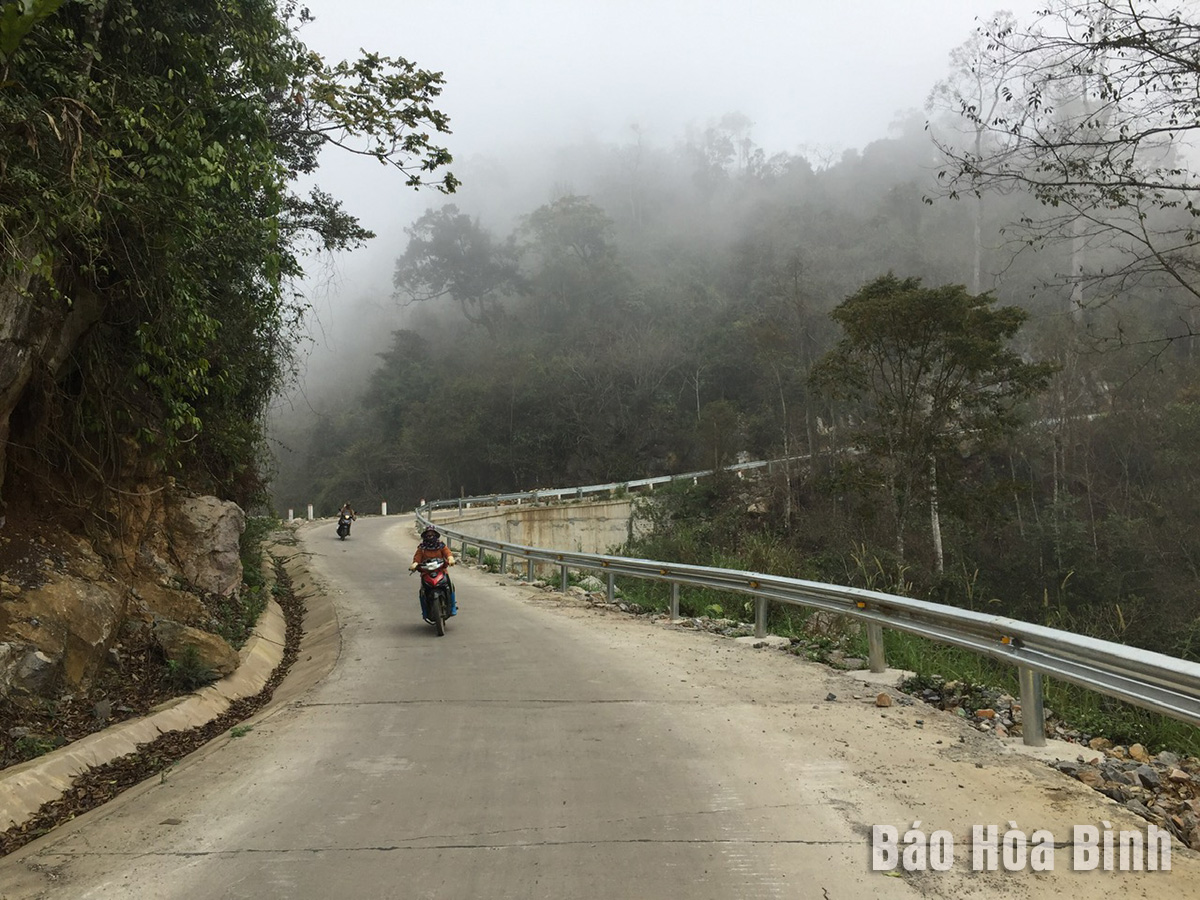
Since the 20-km-long road connecting Mai Chau district Son Thuy commune with two communes of Phu Vinh and Phu Cuong in Tan Lac district was upgraded, the transportation of agricultural products from Mai Chau district is much more convenient.

The Cun Pheo - Hang Kia – Pa Co – National Highway No6
road is upgraded, becoming a key route that boosts socio-economic development
in Mai Chau district.
Similarly, in the Da Bac district, since the Cao Son- Trung
Thanh road was built, it has helped save people much time in traveling from
disadvantaged communes to the district’s centre.
Luong Van Thi, chairman of the Da Bac district People’s
Committee said that in the past years, the district’s biggest difficulty lay in
transport infrastructure, particularly roads that link areas in the same
district or those link disadvantaged districts with neighbouring areas.
Thus, the district authority has pooled resources and given
priority to developing transport infrastructure which helps create a driving
force for local socio-economic development. The district invested in building
the Cao Son - Trung Thanh road to connect communes around the Hoa Binh
Reservoir such as Trung Thanh, Yen Hoa, Doan Ket, and Dong Ruong with the
district’s centre.
In addition, Da Bac also upgraded and expanded the road
connecting Da Bac town to Thanh Son district in the neighbouring province of
Phu Tho. That is an important route for the district to connect with areas that
have more favourable conditions for socio-economic development.
Since 2022 until now, the district has implemented some
important road projects including the upgrade of the Vay Nua - Tien Phong
inter-commune road with a total investment of 400 billion VND, a road in the
highland commune of Mieng Chieng, and the upgrade of the Nanh Nghe
inter-commune road.
Other localities in Hoa Binh province have also paid much
attention to developing transport infrastructure as a foundation to boost their
socio-economic growth.
The province currently has about 10,990 km of roads including
seven national highways, 21 provincial roads, 73 district roads, and thousands
of kilometres in communes, villages, and hamlets.
Between 2021 and 2023, the province has accelerated the progress
of investment preparation and implemented key transport projects that increase
its linkage with Hanoi, Son La and other neigbouring provinces.
Besides key transportation projects, Hoa Binh province has also
paid attention to improving its rural transportation infrastructure system.
Now, 88% of commune roads across the province are asphalted or concretised. The
rate of such roads in villages is 71.6% and inter-hamlet roads 60.53%.
The improved roads help connect and facilitate trade between
localities in the province as well as between Hoa Binh and other provinces or
cities.
Hoa Binh province is undergoing a dynamic transformation amid Vietnam’s national digital transition. Building on Poliburo’s Resolution No. 57-NQ/TW on breakthroughs in science, technology, innovation, and national digital transformation, the province has rolled out a wide range of practical action plans. A standout initiative is the "Digital Literacy for All” movement, an effort to ensure that no one is left behind in the digital era.
Hoa Binh province is undergoing a dynamic transformation in the wake of the national digital transformation movement. Building on Resolution No. 57-NQ/TW of the Politburo on breakthroughs in science, technology, innovation, and national digital transformation, the province has implemented a wide range of practical action plans. A standout initiative is the "Digital Literacy for All” movement ambitious effort to ensure that no one is left behind in the digital age.
With a spirit of unity and proactive problem-solving, the Party Committee, the government and the people of Dong Lai Commune (Tan Lac District) have made great strides in implementing the resolutions of the 24th Party Congress of the commune for the 2020 - 2025 term. Focusing on leadership and practical actions, the commune has brought the Party’s resolutions into daily life, creating strong impacts and pushing the local development forward.
Amid the nationwide push for digital transformation, young people in Hoa Binh Province are stepping up as dynamic pioneers, applying technology to enhance Youth Union operations and expand the reach of youth-led initiatives. Through creativity and adaptability, Youth Union organizations at all levels have introduced a series of practical solutions, contributing to modern governance and community development.
In recent years, An Nghia commune, located in Lac Son district, has stepped up administrative reform, focusing on improving the quality and efficiency of its single-window service unit for receiving and processing administrative procedures. These improvements have helped create favourable conditions for local residents and organisations to handle administrative procedures, contributing to the commune’s broader socio-economic development.
The Prime Minister-approved master plan to develop the multi-use value of forests ecosystems through 2030, with a vision to 2050, aims to improve the management and sustainable use of forest resources, create jobs, increase incomes, and improve the living standards of ethnic minorities, people in mountainous and remote areas, forest workers and those living near forests.



